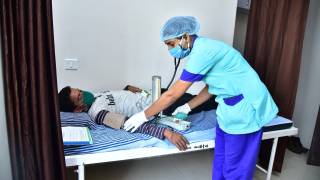Fully Vaccinated Israelis Reinfected with COVID-19

At the largest medical center in Israel, researchers confirmed in a study published by The NEJM on July 28, 2021, they identified COVID-19 reinfections in fully vaccinated health care workers who were symptomatic or had known infection exposure.
Among 1,497 fully vaccinated health care workers at the Sheba Medical Center in Ramat Gan for whom RT-PCR data were available, 39 SARS-CoV-2 breakthrough infections were documented.
This data indicates a reinfection rate of 2.6%.
Of the 39 cases of COVID-19 reinfection, 27 occurred in workers who were tested solely because of exposure to a person with known SARS-CoV-2 infection.
This Original Article revealed neutralizing antibody titers in case patients during the peri-infection period were lower than those in matched uninfected controls (case-to-control ratio, 0.361; 95% confidence interval, 0.165 to 0.787).
Higher peri-infection neutralizing antibody titers were associated with lower infectivity (higher Ct values).
A total of 74% of case-patients had a high viral load (Ct value, <30) at some point during their infection; however, of these patients, only 17 (59%) had a positive result on concurrent Ag-RDT. No secondary infections were documented.
And most breakthrough cases were mild or asymptomatic, although 19% had persistent symptoms (>6 weeks).
The less infectious SARS-CoV-2 coronavirus B.1.1.7 (alpha) variant was found in 85% of samples tested, collected from December 2020 to April 2021.
A total of 91% of the center personnel received two doses of the BNT162b2 (Pfizer-BioNTech Comirnaty) vaccine.
In summary, these researchers stated, 'we found that although the BNT162b2 vaccine is extremely effective, rare breakthrough infections carry an infectious potential and create a special challenge since such infections are often asymptomatic and may pose a risk to vulnerable populations.'
Note: these researchers did not disclose industry conflicts of interest.
Our Trust Standards: Medical Advisory Committee























